Profile
Stephanie Moon
Work History
-
Education:
Fort Lewis College (2003-2008) Colorado State University (2009-2014)
-
Qualifications:
B.S. Chemistry and Biology, Ph.D. Pathology
-
Work History:
Before graduate school I worked as a restaurant hostess, a camp counselor, assistant at a college radio station, at grocery stores, and collecting medicinal plants in Colorado. After college I was a hospital lab assistant for a year processing samples and drawing blood
-
Current Job:
Post-doctoral fellow (research)
-
Employer:
University of Colorado- Boulder
-
My Work:
I study how mosquito-borne viruses and genetic conditions change the way human cells function in response to stress
-
Read more
I want to know what makes us sick when we have a disease. For my PhD I worked on figuring out how viruses carried by mosquitoes make the cells in our bodies react. We found that a group of viruses including Dengue virus sabotage the cells they infect and make them over-react to the infection to cause inflammation. Right now I’m learning how to use yeast (the kind we make bread and beer with) to study human neurodegenerative diseases. I’m hoping to figure out how our brain cells react to stress, and how genetic conditions like Down’s Syndrome might change how a brain cell functions.
Here’s a link to an article that we wrote about how viruses mess up the system that normally controls how the genes in our cells are expressed. I also wrote a short blog article about how the viruses I studied block the decay pathway (like a garbage disposal system) of our cellular mRNA (the message that carries instructions written in our genes to be read and turned into proteins) … and if you’re curious about what it’s like to have a career in research (science or engineering) or to be a veterinarian, my blog has posts written by people in these professions too. Check it out here . And click here for an example of a research article about Hepatitis C virus that we recently published.
-
My Typical Day:
I work in a molecular biology laboratory at a university where I do experiments, analyze results, and discuss research with my adviser and other research scientists
-
Read more
One of the cool things about being a researcher is that you end up doing a lot of different things on a given day and most of the time you can decide what you want to do and when you want to do it. Most days I get into the lab late in the morning (I’m not really a morning person!) and start working on an experiment at the lab bench. The types of molecular biology experiments I do have lots of waiting times (it’s a lot like baking a cake- you mix everything together, then you have to wait for it to bake, let it cool, then frost it, then finally you can eat it). While I’m waiting for a reaction to finish I search for scientific papers online, read them and take lots of notes. I think about new things I want to learn and figure out how to ask the right scientific question to help me learn them. In the afternoons I finish up experiments or examine human or yeast cells under the microscope to see how they react to different experimental conditions. I record everything I do in the lab by taking notes throughout the day. Other days I might focus more on analyzing results of experiments I did, and thinking about how they fit into research that has been published already. I also talk to fellow researchers in the lab I work in (including my adviser) and people that work in other labs every day, either in an informal way or by giving presentations about my research. This is a good way for all of us to get feedback about our work, come up with ideas and learn new things.
-
What I'd do with the prize money:
I’d like to create a science and art event where scientists and artists can work together to communicate scientific concepts to the public
-
Read more
I would use the money to host an event that would bring scientists and artists together with the goal of communicating scientific concepts to the public. A lot of times the experiments that we do end up creating a cool image (like this Dengue virus infected cell – the Dengue virus is very small compared to this human cell, but we can detect it by staining it red using a technique called immunofluorescence microscopy
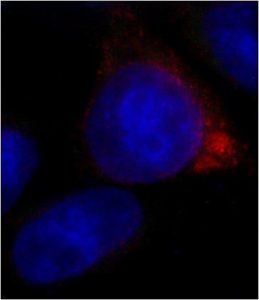 . The nucleus in the human cell is stained blue here). This would be a large event that would have activities and displays about science and art, and how they can be used together to help people learn complicated subjects that are difficult to explain. I would like to use some of the money to host this event, and some of it would be used to record the event to post online in openly accessible formats (by taking digital photos and blogging).
. The nucleus in the human cell is stained blue here). This would be a large event that would have activities and displays about science and art, and how they can be used together to help people learn complicated subjects that are difficult to explain. I would like to use some of the money to host this event, and some of it would be used to record the event to post online in openly accessible formats (by taking digital photos and blogging).
-
My Interview
-
How would you describe yourself in 3 words?
curious, imaginative, determined
What's the best thing you've done in your career?
Figuring out a reason why some viruses make us sick and other viruses don’t
What or who inspired you to follow your career?
My dad used to work as a cook at the Keystone Science School where I was able to go to science discovery summer camp most years. I think being outside and learning about the environment and biology when I was younger inspired me to want to study science later on
What was your favorite subject at school?
Art, especially drawing and music
What did you want to be after you left school?
After high school I knew I wanted to learn more about biology or work in medical fields, but that was about it!
Were you ever in trouble at school?
Only a few times for little things (like being late for class)
If you weren't doing this job, what would you choose instead?
A chef
Who is your favorite singer or band?
Gillian Welch
What's your favorite food?
tacos
What is the most fun thing you've done?
The most fun thing I did recently was to look at the rings of Saturn through my little telescope
Tell us a joke.
What do you call a vampire snowman? Frostbite!!
-

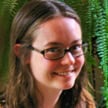
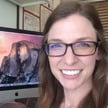
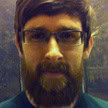
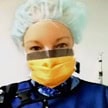
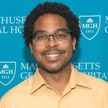
My Comments
What is the most deadly virus? (1 comments)
what is the biggest thing you have worked on (2 comments)
What are you determined about ? Your work or something. (1 comments)